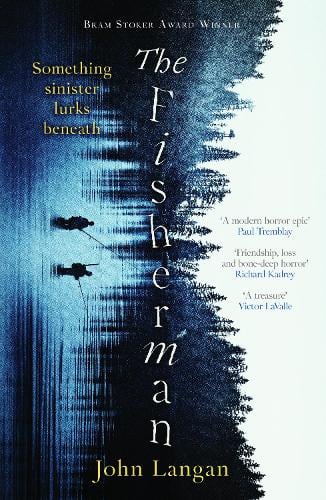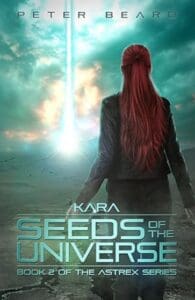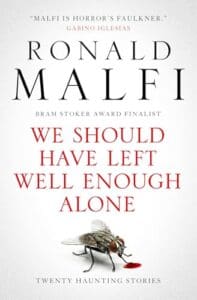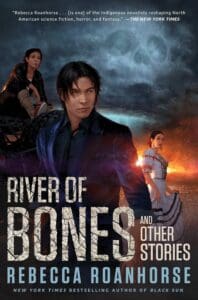
Synopsis:
In upstate New York, in the woods around Woodstock, Dutchman’s Creek flows out of the Ashokan Reservoir. Steep-banked, fast-moving, it offers the promise of fine fishing, and of something more, a possibility too fantastic to be true. When Abe and Dan, two widowers who have found solace in each other’s company and a shared passion for fishing, hear rumors of the Creek, and what might be found there, the remedy to both their losses, they dismiss it as just another fish story. Soon, though, the men find themselves drawn into a tale as deep and old as the Reservoir. It’s a tale of dark pacts, of long-buried secrets, and of a mysterious figure known as Der Fisher: the Fisherman. It will bring Abe and Dan face to face with all that they have lost, and with the price they must pay to regain it.
Review:
I ended 2023 with a trip to the river, a river where the water runs black. The Fisherman spans one continuous campfire story of sorts. With solemn regret and a tangible tinge of pain, the protagonist Abe recounts his tale of grief, redemption and tragedy.
John Langan’s The Fisherman neatly splits up into three parts, each offering you different yet equally as delightful tastes into what horror fiction can be. In fact, horror is all of these things at once, and that is what makes it, and this novel, great. The first section is a heartfelt and gut-wrenching look into grief. Abe’s recounting of meeting his wife and her subsequent passing comes and goes like a dream sequence – bittersweet and fleeting. One of my favourite aspects of the book as a whole was its self-awareness. Just as fishing seems to appear and save Abe’s life, there he is, reminding us that grief is never that simple and no one thing can be a magical fix for such a condition. There were multiple moments throughout just like this where just as I caught myself thinking something about the story, it would directly address those thoughts and divert my expectations.
There is no cliché in the novel. Abe and Dan, brought together through a common workplace and grief, are not your typical best friends who bond through shared experiences and are then suddenly inseparable like twins. I thought Langan’s representation of the two was a very realistic take on what is often the masculine experience. The two are quiet and they are awkward with each other. Open communication and emotion is scarce and yet there is a mutual and unspoken agreement that they are all that the other has.
Much of the novel comes in the form of a gothic folkloric tale that is shared with Abe and Dan on their journey to a mysterious fishing location known as Dutchman’s Creek. I was shocked just how much of the book this story within a story took up, and I admittedly at points was impatiently waiting to return to Abe and Dan, but overall I thought the tale was worth the time spent. As readers we already know that something terrible is going to happen by the end of the novel, and this tale sets up the ‘how’ to our ‘what’. The tale surrounds the origins of Dutchman’s Creek, and how it relates to a woman seemingly brought back to life by a local fisherman. Langan’s prose really shines in these sections. Descriptions of the undead woman and her relationship to water are still etched into my brain even now. The horror surrounding the dead woman creates the necessary terror to propel us to the story’s grim conclusion with an aching feeling of dread.
Admittedly, the final section is a bit of a blur to me, and yet I suspect that it was written this way by design. I felt that I had no control over the words on the page, like they were just passing me by a split second before I could make full sense of them. This added to the overall feeling of inevitability that Abe and Dan’s unresolved and individual grief creates within the story. Abe and Dan’s friendship was enough to survive on, to keep them moving forwards, until it wasn’t. If this all feels a bit spoilery at this point, then it is important to remember that Abe lays everything on the table from the very beginning, and it is all submerged in pain and sorrow.
Supernatural elements punctuate and shift the directions in which the story heads, but the feelings evoked are universal to the human experience. Even as someone who has so far been fortunate in their lifetime when it comes to grief, Langan strikes a chord that I will not forget being struck by any time soon. I think The Fisherman ticks all of the boxes for what a horror story can be: of course, there are monsters, and some of them are human, but there is also an unflinching focus on the feelings and emotions that are often so impossible to put into words, and yet John Langan does.









Leave a Reply